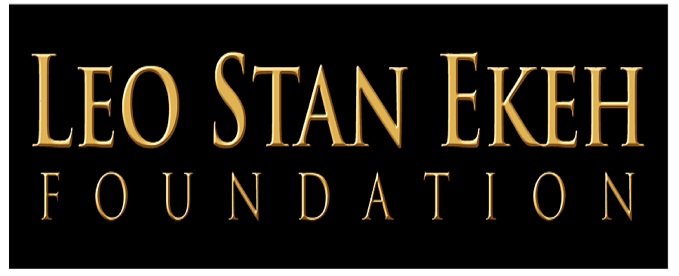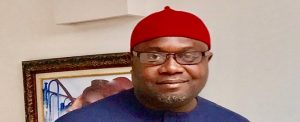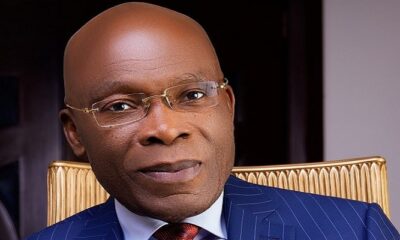News
Leo Stan Foundation Taps Emelonye as DG, to Manage N1.5Bn Revolving Loan Project

Leo Stan Ekeh, chairman, Leo Stan Ekeh Foundation (LSF), has appointed Engr. Amasike Emelonye as director general (DG) to head a team set up to manage the N1.5bn revolving loan scheme for entrepreneurs and indigent students in Imo State.
Ekeh had announced a three-year revolving interest free loan of N1b over the next 10 years to petty traders and small and medium businesses in Imo State on August 28, 2019. T
 Leo Stan Ekeh
Leo Stan Ekeh
he intervention, he revealed, is to reduce hardship, stimulate business activities and give hope to majority of the people in the state.
Further, Ekeh launched an educational support project for indigent but intelligent students of the state to enable them acquire proper university education.
For this, Ekeh set up a non-interest revolving loan scheme of N500m which shall stretch over the next 10 years to help others benefit from the scheme.
Emelonye, a first class British trained technology guru was the pioneer managing director of Zinox Technologies, one of the companies founded by Ekeh. Educated in the United Kingdom with multiple degrees and professional certifications, Emelonye is a thoroughbred ICT professional.
He led the Zinox team that designed the INEC electronic voter register system and co-developed the INEC SmartCard Reader and PVC system, amongst several other notable national and state projects.
A renewable energy and biometric solutions consultant to several Agencies, Emelonye is a tech guru who has led major ICT infrastructural developments.
 Engr. Amasike Emelonye
Engr. Amasike Emelonye
He hails from Ideato South Local Government of Imo State and is happily married with a lovely wife and two brilliant children.
Ekeh disclosed that Emelonye was appointed based on his solid pedigree.
Furthermore, he affirmed that the platform for the N1.5bn loan scheme will be digitally-driven and with less human interface to avoid manipulations and compromises.
As a result, Emelonye’s industry experience will come in handy. In addition, he informed that other members of the management team will be unveiled soon.
Ekeh, who was reluctant to go further, when asked, disclosed that he is a product of a trust economy.
He added that he has done business in the last 37 years based on trust and not by pledging his assets based on collateral.
“The biggest collateral you can have today is your integrity. You cannot build a multinational company based on pledging your assets. So, I am giving a chance to others in this regard, even though it is a huge risk. If this works, it will help a lot of needy entrepreneurs and indigent children acquire quality education and challenge the status quo or what I call wealth disruption in the 3rd world.
“This is not a political-oriented programme and, as such, politicians are barred from participation. It is also not a showbiz. Therefore, I urge the media to see themselves as partners in progress and only focus on sharing relevant information pertaining to the scheme.”
On the likely commencement of the scheme, Ekeh revealed that the project will take off before September ending.
“The first set of beneficiaries, about 1400, will take off before the end of September while we build remote technology to on-board the next batch. At the moment, our tech guys are working on the back-end. We want to limit human interference by at least 90% and instead, drive the project through technology,” he said.
Ekeh, who was met on arrival from a closing ceremony of a summer re-training exercise for teachers in his local government, Ubomiri in Mbaitoli Local Government which he funds every year, was quizzed as to whether the beneficiaries of the loan scheme will be able to repay the investment.
“Well, with human beings, you have to take a risk. The human capital in Imo State is very strong. I have no doubts about that. However, the infrastructural readiness of the state is a bigger problem. From what I have seen, Imo State is in a pitiable state and only God can save the state from its current level of infrastructural decay.
“The young Governor I can see is almost desperate to change the Imo story. You visit Imo and leave very depressed. It is really unfortunate.”
The serial digital entrepreneur who decried the sorry state of infrastructure in the State, further called on other well-meaning Imo indigenes to rise to the challenge.
“I plead with other indigenes of the state to contribute no matter how small to enhance the profile of their respective kindred. It will count,” he concluded.
News
Nigeria’s Electricity Exports Hit $112m amid Persistent Power Outage

Recent data from the International Trade Centre (ITC) has revealed that Nigeria’s electricity exports have reached a value of $112m.

According to the ITC’s website, Nigeria is currently exporting electricity to two neighbouring African nations: the Republic of Benin and Niger.
As of January 18, 2025, Nigeria’s electricity exports to Benin amounted to $66m, with a potential export value of $82m. However, there remains an unrealised export potential of $16m, according to the Punch.
Similarly, electricity exports to Niger were valued at $46m, with the potential for $51m in exports, leaving an unrealised potential of $4.1m.
“The products with greatest export potential from Nigeria to Benin are electrical energy, Urea, and Bars & rods of iron/steel,” the ITC noted.
It also highlighted that the largest absolute difference between potential and actual exports was in electrical energy, with an additional $4.1m in exports still unrealised.
The ITC further indicated that Nigeria’s exports to Niger include electrical energy, Portland cement, and soups, broths and preparations.
While the export data paints a picture of growth in the sector, concerns remain about the state of electricity supply in Nigeria.
According to the Punch, Chief Princewill Okorie, executive director, Electricity Consumer Protection Advocacy Centre, questioned the country’s priorities.
He said, “Are the electricity companies in those countries they export electricity to serve the consumers the way they serve Nigerian consumers? We cannot be celebrating electricity export when at home in Nigeria we are experiencing blackout and extortion in violation of our consumer protection laws. A good parent first takes care of his home before caring for outsiders.”
He further criticised the export of electricity, questioning whether the money generated was benefiting the Nigerian power sector.
“Is it the wellbeing of Nigerians that is more important or the money generated from export of electricity? If such money is generated, why not inject it into electricity when they are telling us they lack liquidity? What sense does it make for our local industries and economy to be dying because of electricity while export is building other countries’ economies?” Okorie asked.
He added that Nigeria’s economic struggles, including the exodus of professionals and youths, were exacerbated by power shortages, questioning the rationale behind celebrating electricity exports under these conditions.
“It is a shame. Charity begins at home. Let them also explain what the money has been used for when we keep borrowing from the World Bank,” he added.
News
SERAP Petitions Trump, Urges Recovery of Stolen Nigerian Assets, Barring Corrupt Officials from US

Socio-Economic Rights and Accountability Project (SERAP) has called on US President-elect Donald Trump to identify and recover stolen Nigerian assets hidden in the United States.

Donald Trump
In a statement released on Sunday via X, SERAP urged Trump’s administration to ensure the return of these assets to the Nigerian people.
“We’ve urged US President-elect Trump and his incoming administration to identify US-based stolen assets traced to Nigerian public officials and to ensure the return of any such assets to the Nigerian people,” SERAP stated.
The organization also demanded that Nigerian public officials implicated in the theft of these assets be banned from entering the US.
Meanwhile in the letter, Trump was urged to “attach and release to Nigeria some $500 million worth of US-based proceeds of corruption traced to former Nigerian dictator General Sani Abacha.”
SERAP’s request “aligns with the UN Convention Against Corruption, which both the US and Nigeria have ratified.”
The organization emphasized that the US Department of Justice should initiate civil asset forfeiture proceedings to fulfill the US commitment to assisting Nigeria in recovering looted assets.
In the letter, SERAP explained that “these proceeds are separate from the $480 million of Abacha-origin funds that have been forfeited to the US under an August 2014 US federal district court order.”
SERAP urged Trump’s administration to initiate discussions with the Nigerian government to fulfill the objective of returning the stolen assets within an agreed framework and timeline.
The organization also stressed the importance of acknowledging the role of civil society in asset recovery matters.
SERAP noted that the UN Convention Against Corruption requires states to return “corrupt” assets to their countries of origin.
The organization noted it believes that Nigeria has met the requirements for the return of the $500 million in proceeds.
The letter was signed by Professor Alexander W. Sierck, US volunteer counsel, SERAP and Adetokunbo Mumuni, executive director and copied to Stuart Symington, US Ambassador to Nigeria.
News
EXIM Bank of the United States, NEXIM Bank Sign MoU to Strengthen Economic Cooperation

The Export-Import Bank of the United States (EXIM) has signed a memorandum of understanding (MOU) with the Nigerian Export-Import Bank (NEXIM) that will deepen collaboration and trade ties between the United States and Nigeria.

The agreement was signed by Exim President and Chair, Reta Jo Lewis, on behalf of Export Import Bank of United states, while Abba Bello, Managing Director/ Chief Executive of NEXIM signed on behalf of the Nigerian Export-Import Bank.
During the signing ceremony, EXIM President and Chair, Reta Jo Lewis, highlights increased opportunities for U.S. exports to Nigeria in critical minerals, clean energy, aviation and infrastructure.
Also, NEXIM MD/CE, Abba Bello, highlights that the partnership is a significant milestone for Nigeria and the US that will provide increased access to trade financing for Nigerian businesses whilst facilitating smoother and more robust mutually beneficial trade flows between the two countries.
The MOU demonstrates a shared desire to identify and promote trade and economic cooperation between the two countries, especially in sectors like clean energy, critical minerals, aviation, maritime transport, digital connectivity, and infrastructure, amongst others.
“Nigeria is the second largest U.S. export destination in Sub-Saharan Africa, but there is so much opportunity to grow,” said Chair Lewis.
“This MOU with NEXIM sends a strong market signal to Nigeria that EXIM is eager to forge a stronger commercial relationship by supporting U.S. exports in key sectors.”
The MD/CE NEXIM in his own remarks noted that, “This collaboration marks a significant milestone in our efforts to strengthen trade ties between Nigeria and the United States.
We are confident that this partnership will open new avenues for economic growth and development”. The MOU, signed virtually marks a significant milestone for the United States and Nigeria.
The MOU will enhance the competitiveness of companies in both nations and strengthen collaboration by exploring options for utilizing EXIM’s medium- and long-term loan guarantees and/or direct loans to finance U.S. exports to Nigeria.
This MOU contributes directly to EXIM’s Sub-Saharan Africa mandate. Over the past three years, EXIM has approved approximately $4 billion of authorizations in support of U.S. exports to sub-Saharan Africa.
The Export-Import Bank of the United States (EXIM) is the nation’s official export credit agency with the mission of supporting American jobs by facilitating U.S. exports.
To advance American competitiveness and assist U.S. businesses as they compete for global sales, EXIM offers financing including credit insurance, working capital guarantees, loan guarantees, and direct loans.
As an independent federal agency, EXIM contributes to U.S. economic growth by supporting tens of thousands of jobs in exporting businesses and their supply chains across the United States.

 News2 days ago
News2 days agoSERAP Petitions Trump, Urges Recovery of Stolen Nigerian Assets, Barring Corrupt Officials from US

 News2 days ago
News2 days agoNigeria’s Electricity Exports Hit $112m amid Persistent Power Outage

 Telecom2 days ago
Telecom2 days agoSubscribers Reject Tariff Hike, Say FG Cannot Speak for Them

 E-Financial2 days ago
E-Financial2 days agoOver 562m People Own Cryptocurrency Globally

 Telecom2 days ago
Telecom2 days agoMTNN Raises N42.20Bn through Commercial Paper

 General News2 days ago
General News2 days agoNIS Announces Maintenance on Passport Portal

 General News2 days ago
General News2 days agoNITDA, NFIU Collaborate on AML/CFT Data Management System Upgrade

 E-Financial2 days ago
E-Financial2 days agoSEC Sets January 31 Deadline for CMOs Registration Renewals























